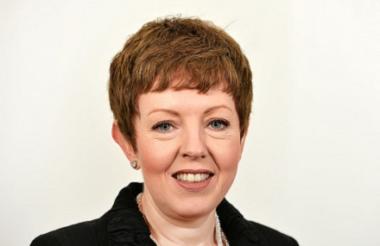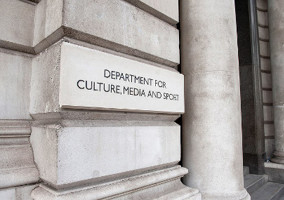It seemed like such a good idea at the time. When the Charities Act 2006 abolished the role of chief charity commissioner and split the function between two newly created positions – chair of the board (to be appointed by a government minister) and chief executive – charities hoped that this would be the springboard for a bright new future for the Charity Commission. One in which the regulator would be more sensitive to the needs and aspirations of the sector, and less slow-moving and legalistic in its behaviour.
Be careful what you wish for
For 150 years chief charity commissioners had been senior civil servants. They were sometimes considered unresponsive to the changing dynamics of the charity sector and insufficiently accountable to the public, but they were never accused of party political bias.
But unfortunately, 12 years on, we can now see that the creation of a government-appointed chair’s role has seriously damaged the Commission’s reputation as an impartial body operating above the political fray. This hasn’t happened overnight. Slowly but surely, over a series of four appointments, we have moved from the chair of the Charity Commission being selected on merit, to a situation in 2018 where the job appears to be little more than a party political appointment in the gift of the Prime Minister.
The first chair of the Commission under the post-2006 arrangements was Geraldine Peacock, a former chief executive of two national charities with zero political connections. That was a good start. Next up was Dame Suzi Leather. She brought excellent regulatory experience and a good understanding of the sector – unquestionably the best candidate for the job. But, despite her many achievements as the Commission’s chair, Dame Suzi made one serious mistake. Although she had never held any political office, she was a member of the Labour Party and did not renounce her membership as she should have done when she became chair, given the Commission’s impartial role.
This appears to have emboldened the coalition government when replacing Dame Suzi at the end of her term in 2012. Enter William Shawcross – someone with no experience of regulation, who had never led or even worked in a large, complex organisation, and who had only very limited experience of the charity sector. It is hard to see how he came out on top in an open recruitment competition, except that he was extremely well-connected, not least to senior members of the Conservative Party.
And so to the recent announcement that the Conservative peer Baroness Stowell, who is a former Leader of the House of Lords and member of David Cameron’s Cabinet, is the government’s preferred candidate to succeed William Shawcross when he steps down later this month. This takes the politicisation of the Charity Commission’s board to a whole new level.
Not the best candidate
I understand from sources close to the process that Baroness Stowell was not the favoured candidate of the independent assessment panel chaired by the permanent secretary of the Department for Digital, Culture, Media and Sport (DCMS). An individual with significant regulatory experience and impressive charity leadership credentials, but with no political connections, had been identified by the panel as the best candidate. But when the three names who ‘crossed the line’ were put forward to Number 10 – as the Public Appointments process requires – it was Baroness Stowell who emerged, after a long delay (and presumably after an almighty tussle between DCMS and Number 10), as the Prime Minister’s preferred candidate. Politics had won the day.
Baroness Stowell has recently become a trustee of two charities. She joined the board of Crimestoppers (chaired by former deputy chairman of the Conservative Party, Lord Ashcroft) in July 2017, just two weeks before the Charity Commission vacancy was publicly advertised by the Cabinet Office. Her second trusteeship, at the Transformation Trust, only began in January 2018. These timings may be coincidental, but look very much like someone with little sector experience hurriedly joining a couple of charity boards to strengthen her CV.
Why this matters
In a 2015 discussion paper on Charity Commission independence, NCVO rightly stated that: “Independence from both government and party politics is vital for the Charity Commission, particularly as the regulator of a sector that is characterised by its party-political neutrality. A charity regulator perceived to be political risks undermining perceptions of charities more generally.
“And it is worth emphasising that perceived independence – being seen to be independent – is just as important as actual independence. Charities cannot afford for their regulator to be anything other than beyond all suspicion.”
To her credit, Baroness Stowell has been quick to say that if her appointment is confirmed following an appearance before the DCMS Select Committee on 20 February she will resign the party whip and her Conservative Party membership. However, there will be no getting away from the fact that a recently departed Conservative cabinet minister is chairing the Charity Commission.
Why, then, has Vicky Browning, chief executive of Acevo, been the only umbrella group leader so far to express concern about Baroness Stowell’s proposed appointment? Browning has said that Acevo is “disappointed that the sector’s calls for a politically neutral Commission chair have not been met”. Full marks to Vicky Browning for speaking truth to power.
Many more people in the sector will surely be extremely concerned when they learn that an impressive, politically neutral candidate was identified by the assessment panel as the best person for the job, but turned down by Number 10 in favour of a senior member of the Conservative Party.
Questions for the pre-appointment hearing
I hope there will be some tough questions asked at Baroness Stowell’s pre-appointment hearing on 20 February. The DCMS Select Committee must, in particular, get answers to two critical questions. Who were the three candidates whose names were put forward by the independent assessment panel? And why does Number 10 think that Baroness Stowell is a better person for the job than the non-politically aligned and highly experienced candidate favoured by the panel?
It is unfortunately too late to improve the process this time round. But if, for the future, we are to stop the chair of the Charity Commission just becoming a ‘grace and favour’ role handed out by the Prime Minister of the day, I also urge the Select Committee to push hard for the implementation of NCVO’s 2015 proposals on changing the appointment process for the chair of the Charity Commission. These include:
- Giving formal control of the appointment to the House of Commons, not the government;
- Widening the membership of the Parliamentary committee responsible for the pre-appointment hearing so it includes representatives of both houses;
- Giving Parliament an effective power of veto at the pre-appointment hearing;
- Requiring a unanimous vote for appointment; and
- Making the chair’s term of office non-renewable and fixed.
The constitutional changes of 2006 have had the unintended consequence of politicising the role of Charity Commission chair. Both the public and the 168,000 charities regulated by the Commission deserve better. Regardless of whether Baroness Stowell is appointed this time round, and it’s almost impossible to think that she won’t be, we urgently need a public consultation about how to implement NCVO’s proposals for taking the appointment process for the Commission’s chair out of the party-political arena.
Only in this way can full confidence in the Charity Commission’s political impartiality be restored.
Andrew Hind was the first chief executive of the Charity Commission between 2004 and 2010. He is a director and executive editor of Civil Society Media.
22 February 2018
Editor's note: Since this story was published, Julia Unwin, who was an independent member of the appointments committee has said that Stowell was an "outstanding candidate" and that she was the only candidate put forward by the panel.
|
Related articles












